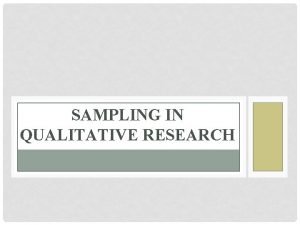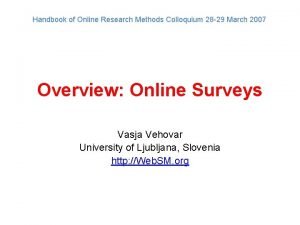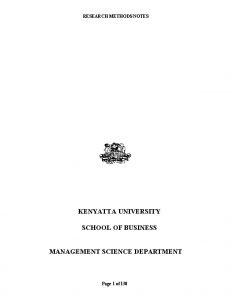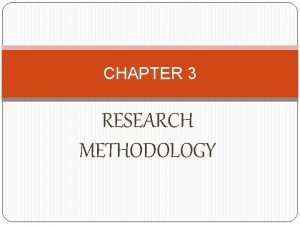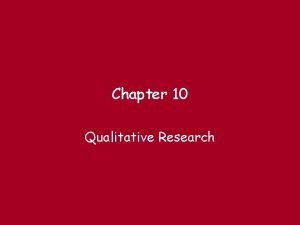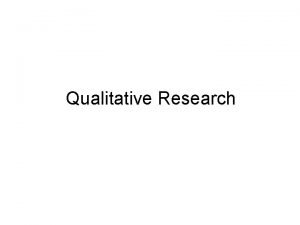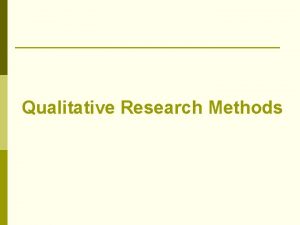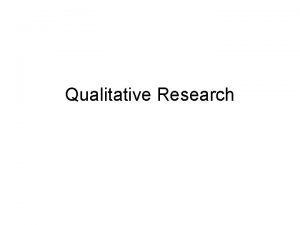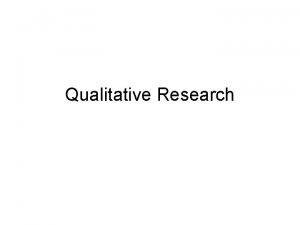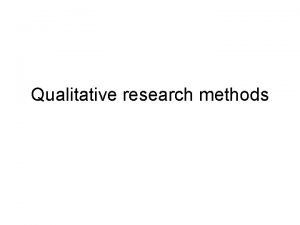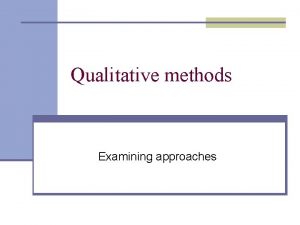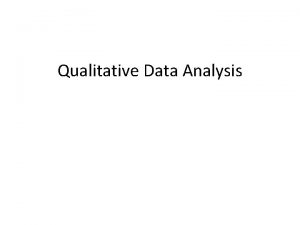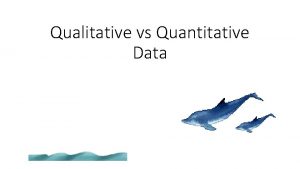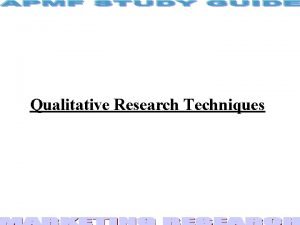QUALITATIVE METHODSFIELD RESEARCH Research Methods University of Massachusetts
















- Slides: 16

QUALITATIVE METHODSFIELD RESEARCH Research Methods University of Massachusetts at Boston © 2012 William Holmes 1

WHAT IS FIELD RESEARCH? I • Information collection • Based on direct sensory input • Inductive means create – questions, – hypotheses, – conclusions 2

WHAT IS FIELD RESEARCH? 2 • • Immersed in culture Not highly structured Flexible Creative 3

PRINCIPLE MEANS • • Observation Participation In Depth Interviews Non-reactive Data Collection 4

OBSERVATION ISSUES • Unstructured versus Structured • Hidden versus Open • Interactive versus Non-active • Method of recording information 5

PARTICIPATION ISSUES • • • Degree of participation Role of participator Knowledge of participants Obligations to participants Ethical dilemmas Method of recording information 6

INTERVIEW ISSUES • • • Gaining Access Starting Interview Role of Interviewer Asking Qualitative Questions Method of Recording Information 7

NON-REACTIVE DATA ISSUES • Availability of Non. Reactive Data • Completeness of Data • Relevance of Data • Interpretation of Data • Legal and Ethical Dilemmas 8

FIELD SAMPLING ISSUES: 1 • Difficulties of probability sampling • Snowball sampling • Sampling across time • Sampling different locations 9

FIELD SAMPLING ISSUES: 1 • • Sampling activities/events Purposive sampling Checking representativeness Checking exceptions 10

MAKING SENSE OF QUALITATIVE DATA: I • • • Conceptual categories Grouping/piling Keyword indexing Storytelling Content analysis Reconfirming 11

MAKING SENSE OF QUALITATIVE DATA: II • • • Theory construction Empirical generalization Question refinement Storytelling Purposive selection 12

ETHICAL ISSUES: 1 • Deceptive Purpose and Natural Behavior • Unethical Action and Unnatural Behavior • Not Helping those in Need • Manipulating Other’s Behavior 13

ETHICAL ISSUES: 2 • Is “Ethical Neutrality” Unethical? • Use of Informants • Ethics of Reciprocity • Ethics of Compassion 14

ASSESSING VALIDITY AND RELIABILITY: 1 • Use multiple sources • Repeat questions later on • Ask about different circumstances • Look for exceptions 15

ASSESSING VALIDITY AND RELIABILITY: 2 • Compare informants with observers • Compare within observers and informants • Share doubts about validity and reliability 16
 Qualitative research methods in political science
Qualitative research methods in political science Qualitative research research design
Qualitative research research design Qualitative sampling technique
Qualitative sampling technique Visual methods in qualitative research
Visual methods in qualitative research Qualitative research methods
Qualitative research methods Sampling methods in qualitative and quantitative research
Sampling methods in qualitative and quantitative research Teacher as a researcher
Teacher as a researcher Methodology
Methodology Qualitative research methods
Qualitative research methods University of massachusetts building authority
University of massachusetts building authority Research methods notes kenyatta university
Research methods notes kenyatta university Appendices example in research paper
Appendices example in research paper How to write research methodology chapter 3
How to write research methodology chapter 3 Qualitative research
Qualitative research Characteristic of a qualitative research
Characteristic of a qualitative research Integrating qualitative and quantitative methods
Integrating qualitative and quantitative methods Qualitative forecasting methods
Qualitative forecasting methods


